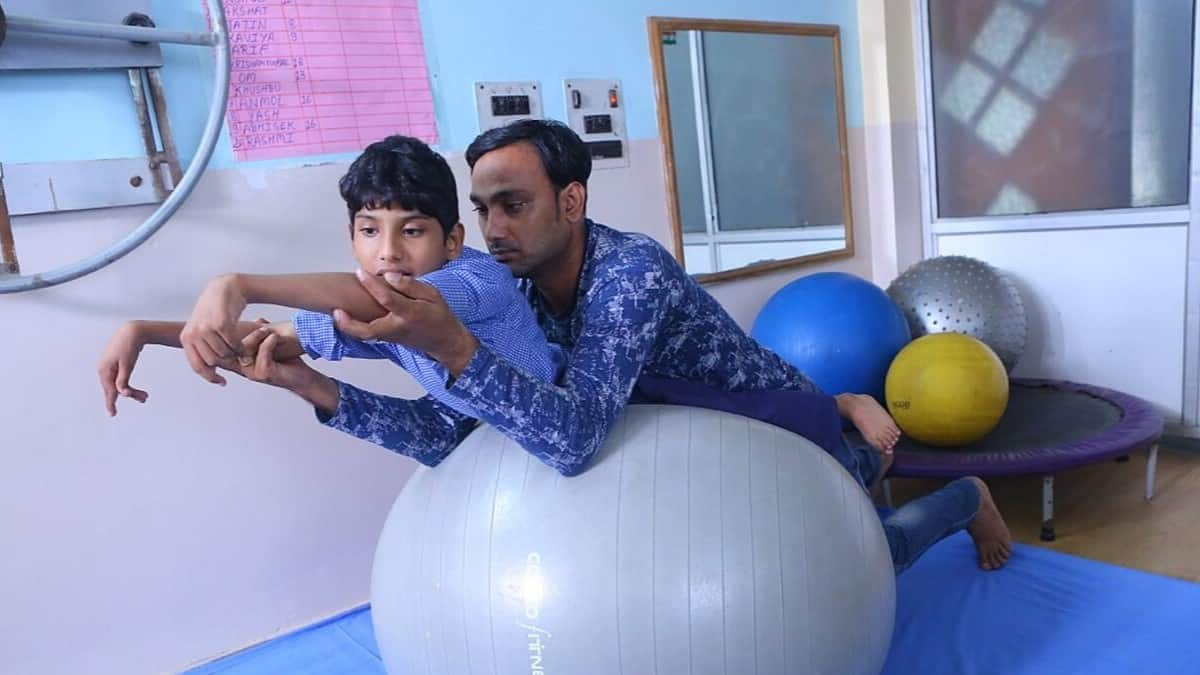Centre rolls out competency-based curriculum for 10 allied and healthcare professions
Team Careers360 | April 24, 2025 | 03:31 PM IST | 3 mins read
The new curricula for physiotherapy, psychology and nutrition among others, are to be ‘mandatorily’ rolled out from 2026; aim to bring uniformity among courses

NEW DELHI: The central government has released new syllabi for 10 allied and healthcare professions, including physiotherapy, psychology and nutrition, focusing on the practical application of knowledge and holistic development of students.
The new competency-based curricula were launched on Wednesday by the union ministry of health and family welfare (MoHFW) and the National Commission for Allied and Healthcare Professions (NCAHP), a regulatory body for paramedical education and profession. The new curricula, which will be “mandatorily” rolled out from 2026, are aimed at bringing uniformity in the courses and improve healthcare delivery around the country.
“These curricula will ensure uniformity and an important step in the direction of actualising the vision of ‘One Nation, One Curriculum’,” said Yagna Unmesh Shukla, NCAHP chairperson, at the launch ceremony. She added that this is the first batch syllabi prepared by the commission with the curricula of other professions governed by the body still in the pipeline.
NCAHP was set up in 2021 to formally recognise and maintain standards of education and services of across 56 professions under 10 different allied healthcare areas. The centre has been pushing for the formation of state-level councils for these fields.
Also read NCISM introduces 7.5-year Ayurveda programme leading to BAMS; new form of NEET exam for admission
Allied, healthcare courses: New curriculum
The regulator had begun rolling out the draft curricula of paramedical disciplines for public feedback since November last year. The proposed curricula for four professions – physician associate; applied psychology and behavioural health; occupational therapy; and nutrition and dietetics – were uploaded for feedback before the commission decided to publish the final drafts of the 10 curricula listed below:
- Physiotherapy
- Applied Psychology and Behavioural Health
- Optometry
- Nutrition and Dietetics
- Dialysis Therapy Technology and Dialysis Therapy
- Radiotherapy Technology
- Medical Radiology and Imaging Technology
- Anaesthesia and Operation Theatre Technology
- Health Information Management
- Physician Associates
According to MoHFW, the curricular handbooks offer guidelines regarding course content, eligibility criteria, methods of training delivery, and institutional infrastructure requirements.
The documents were developed following consultation with academic experts, representatives from professional associations, and other stakeholders across the healthcare ecosystem. The drafting process also involved a review of existing educational modules, said a press release from the ministry.
Much like the competency-based curricula for other medical courses that preceded the latest additions, the emphasis continues to be on moving beyond the theoretical knowledge of the trades and developing the skills for real-world healthcare settings. Apart from clinical expertise, the syllabi seek to inculcate other skills such as communication, teamwork, ethical practice, and lifelong learning. Preparing a skilled workforce in physiotherapy and renal care to achieve universal health coverage is a key goal of the curricular revision and standardisation.
Also read AYUSH Counselling: Open school, private students eligible for BHMS
"These professions play a crucial role in preventive, promotive, curative and rehabilitative healthcare. This initiative is expected to significantly enhance the effectiveness of skill-based training, better align educational outcomes with industry needs, and promote greater career mobility and professional recognition for allied health professionals nationwide,” said union health secretary Punya Salila Srivastava.
Srivastava added that success of the curricula hinges as much on their content as on the institutional preparedness, faculty training, infrastructure development, and continuous quality monitoring. “Digital modules of the curriculum will be crowd sourced to make them available to all for their capacity building so that the vision of Swastha Bharat can be promoted,” she said.
Follow us for the latest education news on colleges and universities, admission, courses, exams, research, education policies, study abroad and more..
To get in touch, write to us at news@careers360.com.
Next Story
]Pahalgam Terror Attack: Kashmiri Muslim students terrified, go in hiding as threatening videos demand exodus
Post-Pahalgam terror attack, videos threatening violence against Kashmiri Muslim students surface; reports of evacuation deadline in Dehradun, midnight hostel attack in Chandigarh spread panic.
Sheena Sachdeva